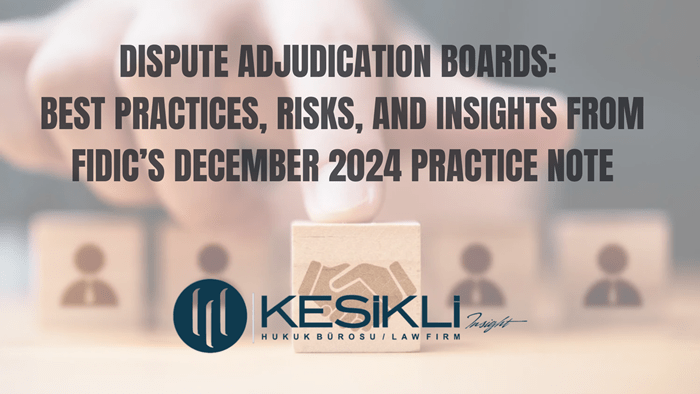FIDIC Guidance Memorandum dated 21 March 2023
As the world continues to grapple with the huge impact of the COVID-19 pandemic and the ongoing war in Ukraine, the construction industry faces unprecedented challenges. Project disruptions, delays, and cost escalations have become commonplace due to supply chain issues and fluctuating market conditions. To address these challenges and provide clarity to stakeholders, the International Federation of Consulting Engineers (FIDIC) issued a Guidance Memorandum on 21 March 2023. This comprehensive guide offers assistance in understanding the relief mechanisms available under FIDIC contract forms, specifically in relation to COVID-19 and war-related issues. In this article, we will delve into the key aspects of the FIDIC Guidance Memorandum, including the risk events it covers, the legal and contractual basis for relief, and the conditions for entitlements under various FIDIC contract clauses.
In light of the current crisis, stakeholders must adopt customized solutions and a flexible, open-minded approach while maintaining an objective perspective when assessing the impact of these global events on construction projects. Through meticulous assessment of the facts, adherence to contractual provisions, and clear causation, stakeholders can effectively navigate the complexities of this unprecedented situation and seek appropriate solutions under FIDIC contract forms in accordance with established legal principles.
The FIDIC Guidance Memorandum provides insights on managing and mitigating the effects of these risk events on construction projects. Effective communication and collaboration between all parties involved, including the Employer, Contractor, and Engineer, are critical for addressing the challenges arising from these events. Stakeholders should engage in proactive dialogue, exploring options for adjustments and modifications to project timelines, budgets, and other key aspects to minimize the adverse impacts on project performance.
Contractors are encouraged to diligently monitor the situation, keeping abreast of developments in supply chain constraints, government regulations, and other factors affecting project progress. By doing so, they can more effectively anticipate potential delays and cost escalations, allowing them to prepare and submit claims in a timely manner. Transparency and timely communication of any potential risks or impacts are crucial for fostering a cooperative environment and facilitating a smoother resolution of any disputes.
Employers should also be prepared to assess contractors' claims objectively and fairly, recognizing the unprecedented nature of the current global situation. They should remain open to granting relief where appropriate and collaborate with contractors to explore alternatives that could limit disruptions and additional costs while maintaining the overall project objectives.
The FIDIC Guidance Memorandum of 21 March 2023 not only addresses the challenges posed by the COVID-19 pandemic and the war in Ukraine, but also provides insights into the specific FIDIC clauses that offer relief mechanisms for the stakeholders in the construction industry. By understanding these clauses and their implications, stakeholders can better navigate the complexities of the current global situation.
Some of the key clauses highlighted in the article include:
1. Sub-Clause 18.4 (Exceptional Events) and Sub-Clause 8.5 (Extension of Time for Completion) - These clauses cover the unavailability of goods due to COVID-19 or the war in Ukraine, allowing contractors to claim an extension of time and reimbursement for cost increases if they can demonstrate that a prevention event or an exceptional event has occurred.
2. Sub-Clause 13.6 (Changes in Laws) - This clause comes into play when trade bans against Russia result in the unavailability of goods, leading to project delays and increased costs. Contractors may be entitled to cost and time extensions, as well as additional costs and prolongation costs if they can demonstrate that the unavailability of goods was caused by a change in the laws of the Country of the Site.
3. Sub-Clause 17.2 (Variation) - This clause applies to situations where damage or loss to goods, works, or contractor's documents due to war cause project delays and increased costs. The contractor may be entitled to compensation if they can prove the damage/loss was caused by an exceptional event and follow the rectification instructions.
4. Sub-Clause 15.5 (Termination by Employer) and Sub-Clause 18.5 (Costs) - These clauses cover the risk of unbearable inflation or economic non-viability, which could lead to the termination of a project contract. Depending on the circumstances, the Contractor may be entitled to additional losses or damages suffered in addition to the costs.
By having a clear understanding of these specific FIDIC clauses and their implications, stakeholders can better assess their options and entitlements during these challenging times.
In summary, the FIDIC Guidance Memorandum of 21 March 2023 serves as a valuable tool for stakeholders in the construction industry, providing direction and assistance in addressing the challenges posed by the global, regional and political happenings around the world. By following the procedures and requirements outlined in the Memorandum and adopting a flexible, open-minded approach, stakeholders can effectively navigate the complexities of these unprecedented events and seek appropriate relief under FIDIC contract forms. Ultimately, open communication, collaboration, and a thorough understanding of contractual provisions will be essential for ensuring the successful completion of construction projects in these challenging times.\ \ @Ömer Kesikli\ @Damla Bayrak
Let's Get Connected!



